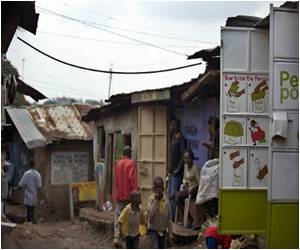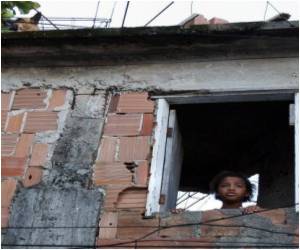Poverty hampers brain development in children, by slowing growth rate in two key brain structures, finds a new University of Wisconsin-Madison study.

The differences among children of the poor became apparent through analysis of hundreds of brain scans from children beginning soon after birth and repeated every few months until 4 years of age.
Children in poor families lagged behind in the development of the parietal and frontal regions of the brain - deficits that help explain behavioral, learning and attention problems more common among disadvantaged children.
The parietal lobe works as the network hub of the brain, connecting disparate parts to make use of stored or incoming information.
The frontal lobe, according to UW-Madison psychology professor Seth Pollak, is one of the last parts of the brain to develop and is used to control our attention and regulate our behavior.
The maturation gap of children in poor families is more startling for the lack of difference at birth among the children studied.
Advertisement
Pollak said that the absence of enriching activities and interactions can cause a decrease in the generation of neurons and synapses in the brain.
Source-ANI















